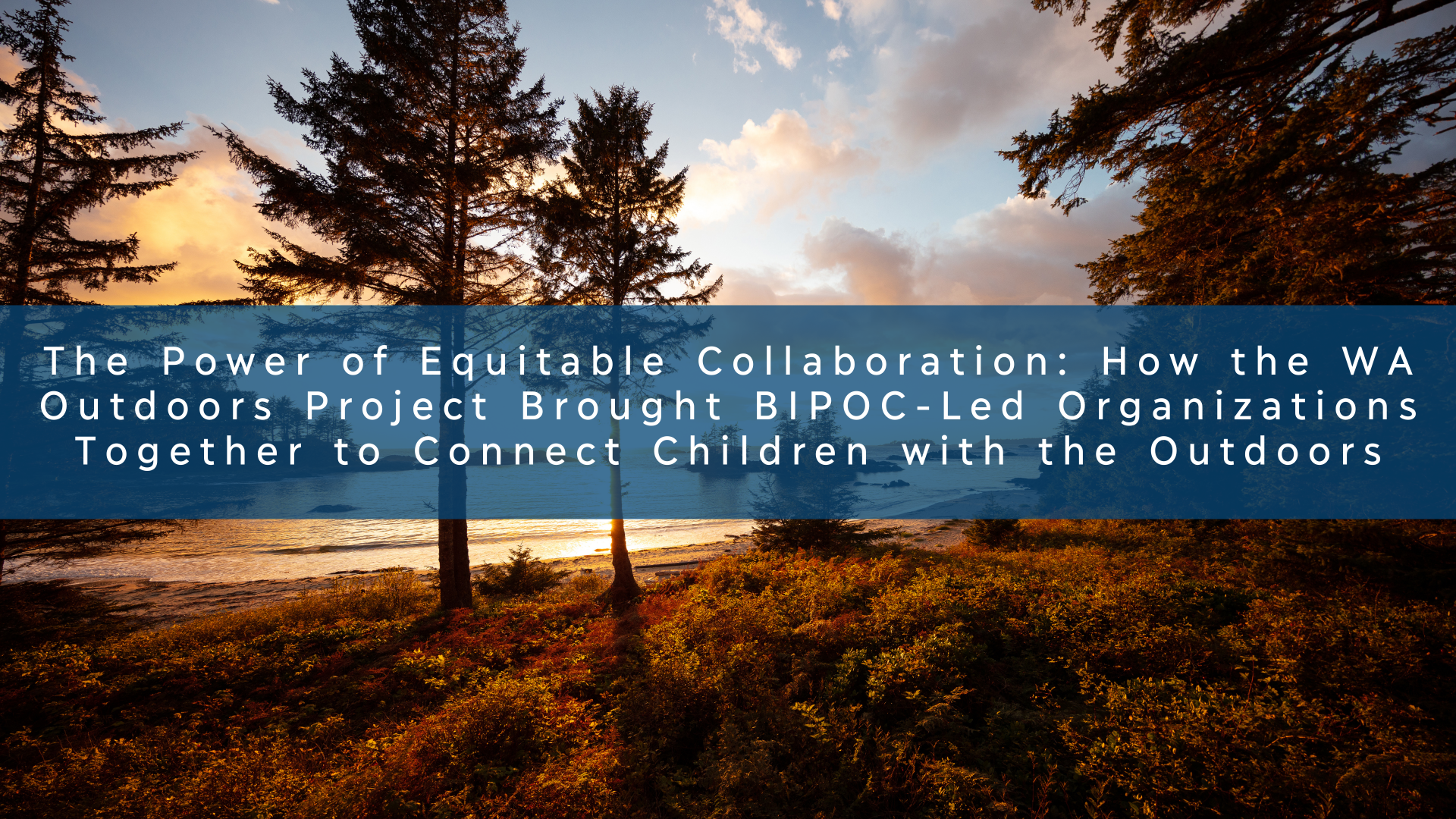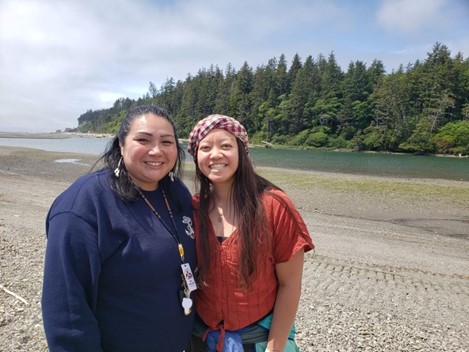
In late 2021, LBC Action invited Philanthropy Northwest to explore a partnership with the WA Outdoors Project, an initiative to strengthen organizational collaboration to promote equitable resources and opportunities for Washington youth to connect to the outdoors. Philanthropy Northwest is proud to have participated in the project’s efforts as fiscal sponsor of the discovery and landscape analysis work throughout 2022 which culminated in the report highlighted below.
Cross-pollination and collaboration are community power, and in front of us is the opportunity to plant pollinator gardens.
This concept is not new to community-led organizations. It is one especially inherent to communities of color, where the exchange between diverse individuals and mutual support are critical to how they innovate. The neighborhood ‘mother’ who feeds children not her own, the coach who provides fatherly guidance, and the operator of the dollar bus are all examples of how communities weave together to learn and increase capacity so everyone can grow and thrive.
In 2022, LBC Action surveyed and interviewed numerous stakeholders and focus groups in the field of connecting children to the outdoors to find the source of a persistent lack of collaboration. As a follow up to the Building Stronger Roots report, LBC Action facilitated a forum where BIPOC-led organizations discussed ways to improve collaboration amongst themselves and discuss best practices for funder-grantee relationships.
This forum and opportunity to connect, share learning, meet other organizations and learn of strengths, resources and opportunities to collaborate served as an example of that pollinator garden.
“Being in this space today, I learned about all the work that is happening and resources available in spaces outside of my organization, where capacity makes it difficult to pick my head up and dream, research, or reach out” said a January forum participant.
An example of this is in the leadership of Stephanie Ung, co-executive director of the Khmer Community of South King County (KCSKC) and Tashia Delacruz-Arnold, education manager for the Quinault Indian Nation (QIN) Education Department. They met during the forum and collaborated to mutually achieve program goals by facilitating a cultural exchange. At 7 am, Khmer elders and youth from South King County piled into a 40-passenger charter bus and traveled to the Quinalt reservation. There, they learned about Quinalt food, music, and heard from tribal members, while bringing cultural elements of their own to share such as Khmer lemongrass beef sticks, and rambutan and mangosteen, popular Southeast Asian fruits. Additional connections made during the forum provided the funding to make this program possible.
“Making this kind of connection to new partners and funding opportunities expands the experience of our Khmer youth and allows us to develop programming that connects us to other communities in Washington” - paraphrase from Stephanie Ung.
Communities are mirror images of the natural world we live in, where pollinators bring diversity and strength to an ecosystem. And this is the opportunity that lies before us:
- We can plant ‘pollinator gardens’ like this community forum where equitable partnerships and relationships can be formed.
- We can build relationships and advocate for increased funding in the state budget for community-led organizations like KCSKC and the Quinault Indian Nation to be the pollinators and leaders.
- We invest in BIPOC leaders like Stephanie and Tashia and their organizations so that they have capacity to innovate and grow.
Additional suggestions for ways to support KCSKC and other BIPOC organizations can be found in a March interview with Stephanie.


